|
Books Should Be Free Loyal Books Free Public Domain Audiobooks & eBook Downloads |
|
|
Books Should Be Free Loyal Books Free Public Domain Audiobooks & eBook Downloads |
|
Top Authors |
|---|
|
Book type:
Sort by:
|
By: Ruth Stiles Gannett (1923-) | |
|---|---|
 My Father's Dragon
My Father's Dragon
A story about a boy who befriends a cat and then sets off on an adventure to rescue a dragon. Illustrations from the original book can be seen at the e-text link. | |
By: Lawrence Beesley (1877-1967) | |
|---|---|
 The Loss of the S. S. Titanic
The Loss of the S. S. Titanic
This is a 1st hand account written by a survivor of the Titanic about that fateful night and the events leading up to it as well as the events that followed its sinking. | |
By: Henry A. Beers | |
|---|---|
 A Brief History of English and American Literature
A Brief History of English and American Literature
Henry Augustin Beers (1847-?), native of Buffalo, NY and professor of English at Yale, with the help of John Fletcher Hurst (1834-1903), Methodist bishop and first Chancellor of American University, has written a sweeping thousand 900 year history of English literature, up to the end of the 19th century. Although at times biased and sometimes misguided (as when he dismisses Mark Twain as a humorist noteworthy in his time but not for the ages), his research is sound and his criticism is interesting and quite often very balanced... | |
By: Marcus Vitruvius Pollio (75 BC - c. 15 BC) | |
|---|---|
 Ten Books on Architecture
Ten Books on Architecture
On Architecture is a treatise on architecture written by the Roman architect Vitruvius and dedicated to his patron, the emperor Caesar Augustus as a guide for building projects. The work is one of the most important sources of modern knowledge of Roman building methods as well as the planning and design of structures, both large (aqueducts, buildings, baths, harbours) and small (machines, measuring devices, instruments). He is also the prime source of the famous story of Archimedes and his bath-time discovery. | |
By: William Walker Atkinson (1862-1932) | |
|---|---|
 Hindu-Yogi Science Of Breath
Hindu-Yogi Science Of Breath
Increase your awareness about the forgotten art of breathing as researched, practiced and written by our Eastern brothers. Inside you will find how our Western society has perhaps forgotten the proper way to breath, hence leaving us more susceptible to disease and poor health. This book explains in layman's terms what happens inside our bodies when we inhale and then exhale. And the effects improper breathing has on both our internal and external extremities. It describes nature's proximity for the respiratory, and circulatory systems. The final sections include invaluable Yogi breathing exercises for increased breathing awareness and better health. Salaam. (Mike Justice) | |
 Clairvoyance and Occult Powers
Clairvoyance and Occult Powers
| |
 The Human Aura Astral Colors and Thought Forms
The Human Aura Astral Colors and Thought Forms
| |
 Reincarnation and the Law of Karma A Study of the Old-New World-Doctrine of Rebirth, and Spiritual Cause and Effect
Reincarnation and the Law of Karma A Study of the Old-New World-Doctrine of Rebirth, and Spiritual Cause and Effect
| |
 A Series of Lessons in Gnani Yoga
A Series of Lessons in Gnani Yoga
| |
 Series of Lessons in Raja Yoga
Series of Lessons in Raja Yoga
The Book talks on the internal world of the self. The real nature of the subconscious mind, the way to control it, how ego comes into play and most frequently asked questions like "Who am I" are attempted to answer. | |
 Genuine Mediumship or The Invisible Powers
Genuine Mediumship or The Invisible Powers
| |
 Mystic Christianity
Mystic Christianity
| |
By: Joseph Lewis French (1858-1936) | |
|---|---|
 Great Pirate Stories
Great Pirate Stories
Piracy embodies the romance of the sea at its highest expression. It is a sad but inevitable commentary on our civilization, that, so far as the sea is concerned, it has developed from its infancy down to a century or so ago, under one phase or another of piracy. If men were savages on land they were doubly so at sea, and all the years of maritime adventure–years that added to the map of the world till there was little left to discover–could not wholly eradicate the piratical germ. | |
 Great Sea Stories
Great Sea Stories
| |
 Masterpieces of Mystery In Four Volumes Mystic-Humorous Stories
Masterpieces of Mystery In Four Volumes Mystic-Humorous Stories
| |
 Masterpieces of Mystery, Vol. 1 (of 4) Ghost Stories
Masterpieces of Mystery, Vol. 1 (of 4) Ghost Stories
| |
 Masterpieces of Mystery Riddle Stories
Masterpieces of Mystery Riddle Stories
| |
By: John Charles Dent (1841-1888) | |
|---|---|
 The Gerrard Street Mystery and Other Weird Tales
The Gerrard Street Mystery and Other Weird Tales
John Charles Dent, the author of the following remarkable stories, was born in Kendal, Westmorland, England, in 1841. His parents emigrated to Canada shortly after that event, bringing with them, of course, the youth who was afterwards to become the Canadian author and historian. Mr. Dent received his primary education in Canadian schools, and afterwards studied law, becoming in due course a member of the Upper Canada Bar. He only practised for a few years, then returned to England to pursue a literary career, writing mostly for periodicals... | |
By: Giambattista Basile (1566 or 1575-1632) | |
|---|---|
 Stories from Pentamerone
Stories from Pentamerone
This is one of the oldest written collections of fairy tales. Although the names are different, listeners should recognise many of the stories as the basis of modern fairy tales. Be warned however, that these stories are a lot more violent and gruesome then the Disney versions you may be familiar with. Parents should listen to the files to gauge their suitability before allowing children to listen to them. | |
By: Augusta Groner (1850-1929) | |
|---|---|
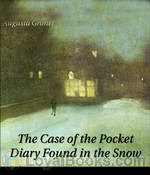 The Case of the Pocket Diary Found in the Snow
The Case of the Pocket Diary Found in the Snow
The account of some adventures in the professional experience of a member of the Imperial Austrian Police. (from the text) | |
By: Albert Bigelow Pain | |
|---|---|
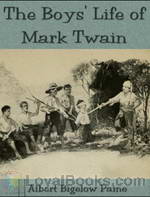 The Boys' Life of Mark Twain
The Boys' Life of Mark Twain
Albert Bigelow Paine was Samuel Langhorne Clemens’ (Mark Twain’s) biographer. He lived with Twain, collecting ideas and material for a biography, for a few years before Twain’s death in 1910. Six years later Paine published this “story of a man who made the world laugh and love him.” For those who have read or listened to Mark Twain’s works, Paine’s work is an invaluable resource to better understand Twain, the stories behind his stories and his life with those he loved and with whom he worked. | |
By: Harold MacGrath (1871-1932) | |
|---|---|
 The Drums of Jeopardy
The Drums of Jeopardy
The Drums of Jeopardy is a 1920 American novel by Harold MacGrath. The story was serialized by the The Saturday Evening Post beginning in January of 1920.In 1922 the book was made into a Broadway play and the following year a motion picture. A second film version appeared in 1931.It is said that a young Boris Karloff, who previously had a few uncredited film roles, chose his stage name for his first screen credit in 1920 from a Russian mad scientist character named “Boris Karlov” in this novel... | |
 The Pagan Madonna
The Pagan Madonna
The Pagan Madonna, one of Harold MacGrath's numerous novels, set in Shanghai, tells a story of intrigue, murder, and illicit art “collecting.” The paths of Jean Norman, a Red Cross nurse from the United States, Ling Foo, a shifty pawn shop keeper, and Anthony Cleigh, millionaire art collector, cross and recross in growing intrigue over a string of beads. It is a world where “. . . every move you make is governed by Chance--the Blind Madonna of the Pagan . . . .” (Introduction by Don Jenkins) | |
 The Goose Girl
The Goose Girl
| |
 The Puppet Crown
The Puppet Crown
| |
 The Voice in the Fog
The Voice in the Fog
| |
 The Lure of the Mask
The Lure of the Mask
| |
 The Grey Cloak
The Grey Cloak
| |
 The Adventures of Kathlyn
The Adventures of Kathlyn
| |
 The Princess Elopes
The Princess Elopes
| |
 Half a Rogue
Half a Rogue
| |
 Arms and the Woman
Arms and the Woman
| |
 Hearts and Masks
Hearts and Masks
| |
 The Ragged Edge
The Ragged Edge
| |
 Man on the Box
Man on the Box
| |
 Parrot & Co.
Parrot & Co.
| |
 A Splendid Hazard
A Splendid Hazard
| |
 The Place of Honeymoons
The Place of Honeymoons
| |
By: Horace Walpole | |
|---|---|
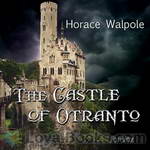 The Castle of Otranto
The Castle of Otranto
The Castle of Otranto is a 1764 novel by HoraceWalpole. It is generally held to be the first gothic novel,initiating a literary genre which would become extremelypopular in the later 18th century and early 19thcentury. Thus, Castle, and Walpole by extension isarguably the forerunner to such authors as AnnRadcliffe, Bram Stoker, Daphne du Maurier, andStephen King. | |
 Shorter Novels, Eighteenth Century The History of Rasselas, Prince of Abyssinia; The Castle of Otranto, a Gothic Story; Vathek, an Arabian Tale
Shorter Novels, Eighteenth Century The History of Rasselas, Prince of Abyssinia; The Castle of Otranto, a Gothic Story; Vathek, an Arabian Tale
| |
 The Letters of Horace Walpole, Earl of Orford — Volume 1
The Letters of Horace Walpole, Earl of Orford — Volume 1
| |
 Letters of Horace Walpole — Volume I
Letters of Horace Walpole — Volume I
| |
 Historic Doubts on the Life and Reign of King Richard the Third
Historic Doubts on the Life and Reign of King Richard the Third
| |
 Letters of Horace Walpole — Volume II
Letters of Horace Walpole — Volume II
| |
By: Roy J. Snell (1878-1959) | |
|---|---|
 The Blue Envelope
The Blue Envelope
A mystery and adventure story for girls set in Alaska. | |
By: Warner Van Lorne | |
|---|---|
 Wanted – 7 Fearless Engineers!
Wanted – 7 Fearless Engineers!
A great civilization’s fate lay in Dick Barrow’s hands as he led his courageous fellow engineers into a strange and unknown land. None of them knew what lay ahead–what dangers awaited them–or what rewards. But they did not hesitate because the first question asked them had been: “Are you a brave man?” | |
By: Marie Belloc Lowndes (1868-1947) | |
|---|---|
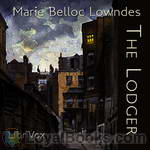 The Lodger
The Lodger
The Lodger by Marie Belloc Lowndes was inspired by the Jack the Ripper murders. An older couple, the Buntings, are forced to take in lodgers to make ends meet. They are on the verge of starvation when a mysterious man, Mr. Sleuth, appears at their door and asks for lodging, paying in advance. However, when the murders of young women in London attributed to a man known only as “The Avenger” continue, the Buntings, particularly Mrs. Bunting, grow fearful that their lodger may be the murderer. | |
 The End of Her Honeymoon
The End of Her Honeymoon
| |
 The Chink in the Armour
The Chink in the Armour
| |
 From out the Vasty Deep
From out the Vasty Deep
| |
 The Red Cross Barge
The Red Cross Barge
| |
 Good Old Anna
Good Old Anna
| |
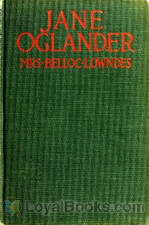 Jane Oglander
Jane Oglander
| |
 What Timmy Did
What Timmy Did
| |
 The Uttermost Farthing
The Uttermost Farthing
| |
 Love and hatred
Love and hatred
| |